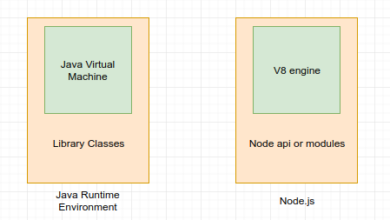Search code, repositories, users, issues, pull requests…
Specification Value Protocol PoSv3 Block Time 60 seconds Difficulty Re-target 10 minutes Nominal Stake Interest 5% annually for the first year and 1% after Min Stake Age 2 hours (no max age) P2P Port 8800 RPC Port 8801 TOR Port 9090 Specification Value Testnet RPC Port 16600 Testnet P2P Port 16601 Testnet Coinbase Maturity 10 Testnet Min Stake Age 10 Specification Value Min Fee 0.0001 TPAY Confirmations 6 Maturity 100
- Blockchain Explorer
- WhitePaper
- Telegram
- Discord
- Latest (https://tokenpay.app.box.com/v/tokenpaywindowswallet)
- Latest (https://tokenpay.app.box.com/v/TokenPayMACWallet)
- Latest (https://play.google.com/store/apps/details?id=com.tokenpay.wallet&hl=en)
TokenPay has snaps available with GUI and without GUI. Snaps are universal Linux packages that should run on any modern Linux distribution. Consult the documentation for your own distribution to find out how to install snapd and gain access to the snap store
If you are interested in installing and running the daemon, run:
Which will install just the daemon, without GUI. This is useful if you are planning on running TokenPay on a server. Desktop users will probably be more comfortable running the GUI version. You can install the GUI version by running:
Both snaps are built using the strict confinement setting. That means that the wallet itself will only have access to the network and just a few folders on disk. Everything else is restricted to the binary itself, but it has enough access to the system to perform its function, while keeping you safe.
The strict confinement level also means that the config files, and therefor the wallet file will be situated in:
It’s recommended you use Ubuntu 18.04, which already has the needed build dependencies, and their proper version in the official repositories. If you are running on Ubuntu 16.04, you will need to install an updated version of OpenSSL and Boost.
Install git:
Clone the repository:
Run the following command to install the needed dependencies:
Configure the toolchain:
Compile the code:
The -j option specifies the number of compile jobs to run in parallel. I usually run 2 jobs per CPU core. So if you are sporting a quad core CPU, feel free to use -j8. Otherwise, adapt this value to whatever works best for your setup.
After the build process completes, you should have two binaries in the src folder:
- tokenpayd – just the daemon, no GUI
- tokenpay – GUI version
Simply copy any one of these in your $PATH.
TokenPay is controlled by all TokenPay users around the world. If you are a developer, you can use your super-powers to do good and contribute. The TokenPay project is hosted on GitHub. This is where developers work hard on the next version(s) of the software. To get involved with developing TokenPay, check out our detailed contributing guidelines. We credit all contributors to the TokenPay project in every major and minor release.
If you think you’ve found a bug or a problem with TokenPay, please let us know! First, search our issue tracker to search to see if someone has already reported the problem. If they haven’t, click here to open a new issue, and fill out the template with as much information as possible. The more you can tell us about the problem and how it occurred, the more likely we are to fix it.
Contact the developers privately by sending an e-mail to Team@tokenpay.com with the details of the issue. Do not post the issue on github or anywhere else until the issue has been resolved.
We would strongly prefer if you create a pull-request on Github in the proper repository with the necessary fix.




